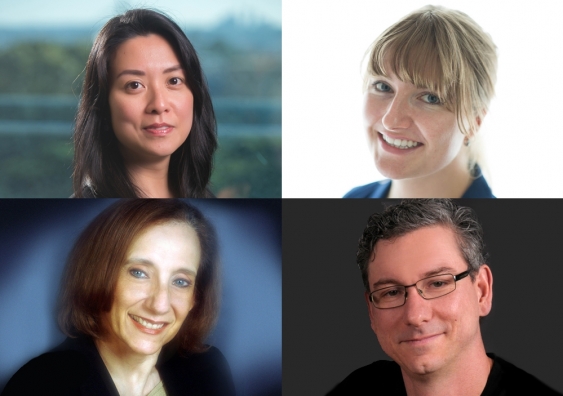Four UNSW medical researchers win Heart Foundation grants
Academics from UNSW Sydney have received more than half a million dollars in funding for cardiovascular research from the Heart Foundation.
Academics from UNSW Sydney have received more than half a million dollars in funding for cardiovascular research from the Heart Foundation.

Yolande Hutchinson
UNSW Sydney External Engagement
0420 845 023
y.hutchinson@unsw.edu.au
Four UNSW researchers have each received a $150,000 grant from the Heart Foundation to investigate the causes, prevention, diagnosis and treatment of heart disease and related conditions.
UNSW Medicine’s Professor Kerry-Anne Rye and Associate Professor Shane Thomas, and UNSW Engineering’s Dr Susann Beier were awarded Vanguard Grants. Vanguard Grants are given to researchers to test innovative concepts in cardiovascular health treatment, with the aim for projects to go onto larger and more rigorous testing in the future.
Dr Cheryl Carcel, Research Fellow at The George Institute and Conjoint Senior Lecturer at UNSW Medicine, won a Postdoctoral Fellowship. Postdoctoral Fellowships are awarded to early-career cardiovascular health researchers to further develop their research skills in the first three years after being awarded their PhD.
Professor Rye will use the two-year grant to identify new treatments for preventing heart disease in people with diabetes. She will use state-of-the-art imaging techniques to investigate new targets for treating plaque build-up in arteries and diabetes.
“The goal of my research is to improve understanding of the causes of heart disease and diabetes and to reduce the health impact and economic burden of both diseases,” Professor Rye said.
Associate Professor Thomas will use the grant to investigate if targeting the inflammatory enzyme heparanase with drugs can treat heart disease. The project builds on his recent collaborative work with Professor Mark Hulett from La Trobe University, to identify the role of heparanase in driving the development of cardiovascular disease.
“We will perform pre-clinical testing on the ability of a heparanase inhibitor drug to protect against heart disease. If successful, these studies have the potential to identify a clinically-viable heparanase targeted drug as a new way of treating patients to reduce their risk of heart attack,” Professor Thomas said.
Dr Beier will use the funding to explore personalised treatment approaches to heart attack stenting.
“Heart disease is the most common cause of death globally and kills one Australian every 27 minutes. Narrowed coronary arteries can be treated by implanting a stent – a mesh metal tube which reopens the vessel. But up to 160,000 stent patients worldwide develop complications – from blood clots to unwanted tissue growth,” Dr Beier said.
“My research will explore a personalised treatment approach, where individual shape differences are accounted for. These shapes can be explored by using the latest analysis, blood flow simulations and 3D soft printing,” Dr Beier continued.
Dr Carcel, who was awarded the $20,000 as well as a Postdoctoral Fellowship, will use the funding to better understand why women and men experience medical care differently after developing heart disease.
“Evidence shows women attending primary health care in Australia are less likely to have their risk factors for heart disease measured. For those at high risk, young women are less likely to receive appropriate treatment. My research aims to better understand why such differences exist and how best to provide cost-effective, sex-specific strategies to improve survival rates,” Dr Carcel said.
In 2019, the Heart Foundation has announced a total 67 individual funding offers to researchers across Australia, with more than half of the successful grants awarded to women.
This funding follows the launch of UNSW’s Medicine’s Look Inside My Heart campaign earlier this year. The campaign highlights the work UNSW medical researchers do on the physiological functions of the heart itself and shares the emotional connection with the wider community who benefit from the work of UNSW researchers.
Read more about .��